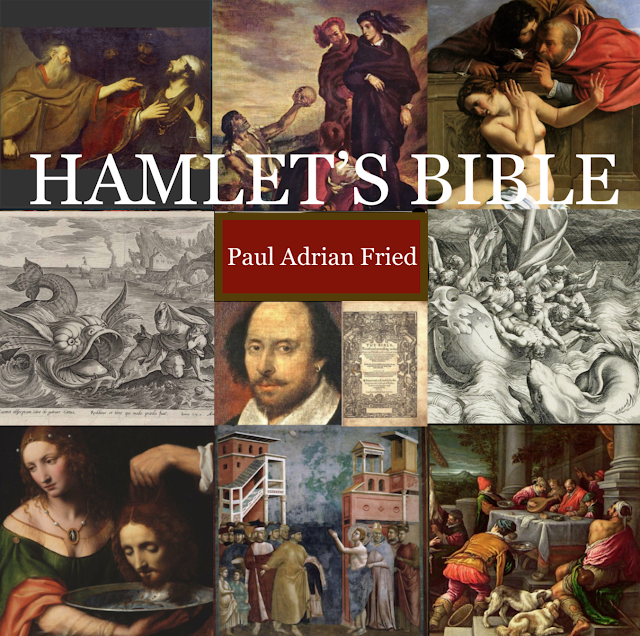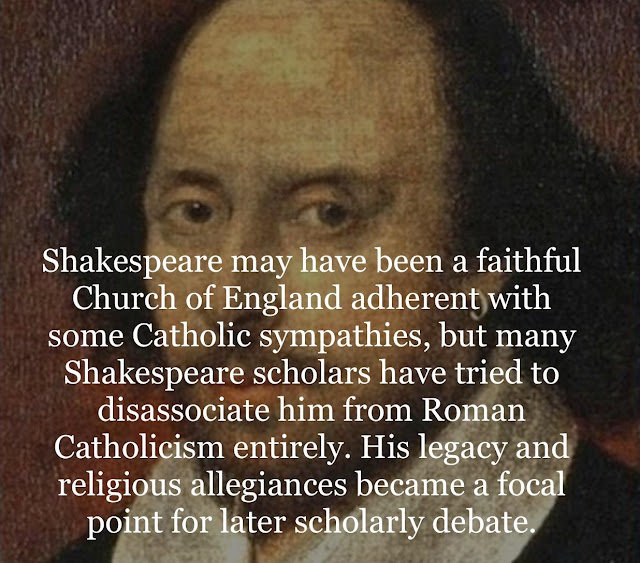
HAMLET’S BIBLE / Dinner-discussion: I will be speaking at a Tues., Jan. 29 dinner at Vanderbilt University about biblical allusions & plot echoes in Shakespeare’s Hamlet (my book project). Rev. Gretchen Person, Associate Chaplain & Associate Dir. of Religious Life at Vanderbilt, was key in arranging this (many thanks!). The poster for the event includes the following images from Renaissance & medieval art (L-R) (see notes below the pic): Top: 1. The prophet Nathan catching the conscience of King David (with a story about a shepherd boy) 2. Hamlet & Horatio, graveyard (two Danes on road to Elsinore—like disciples to Emmaus) 3. Suzannah & corrupt (eavesdropping) elders/judges, from the Book of Daniel (Apocrypha) Middle: 4. Jonah, spit out by fish (Hamlet's pirate ship) 5. Shakespeare & title page of Geneva Bible 6. Jonah thrown from boat (fish about to swallow) Bottom: 7. Salome & head of John the Baptist 8. Francis of Assisi, renounc...


